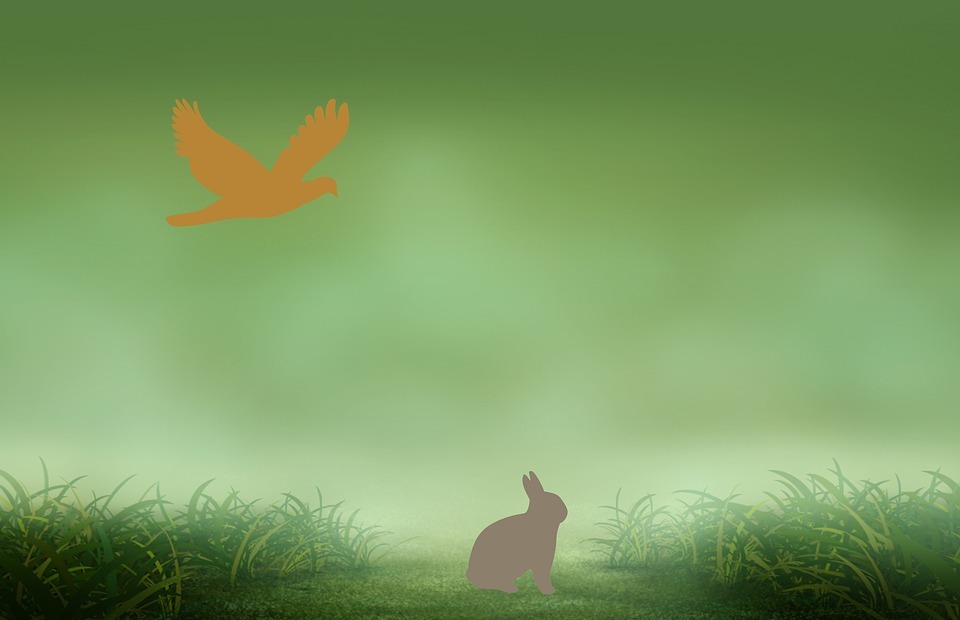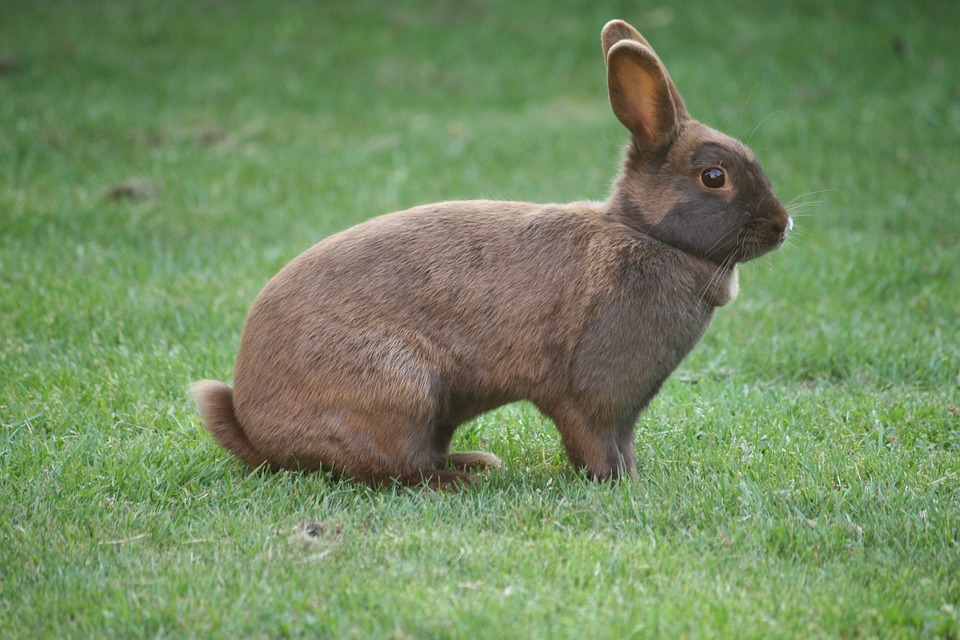This comprehensive guide will delve into the question of whether rabbits can safely consume basil, exploring its potential benefits and risks in detail. We will examine the nutritional value of basil, discuss the appropriate way to introduce it into your rabbit's diet, and address common concerns regarding its safety. By the end of this article, you will have a clear understanding of whether basil is a suitable addition to your rabbit's menu and how to ensure it is enjoyed responsibly.
Part 1: Understanding Rabbit Nutrition and Dietary Needs

Before we dive into the specifics of basil, it's essential to understand the basic nutritional needs of rabbits. Rabbits are herbivores, meaning their diet should consist primarily of fresh hay, supplemented with fresh vegetables and a small amount of pellets.
1.1. The Importance of Hay
Hay forms the cornerstone of a rabbit's diet. It provides essential fiber, which helps with digestion, keeps their teeth worn down, and promotes overall gut health. Timothy hay is a good choice for adult rabbits, while alfalfa hay is more suitable for growing kits and pregnant or lactating does.
1.2. Fresh Vegetables
Fresh vegetables offer important vitamins, minerals, and antioxidants. Choose a variety of leafy greens, such as romaine lettuce, kale, spinach, and dandelion greens. Offer other vegetables like carrots, bell peppers, and cucumbers in moderation.
1.3. Rabbit Pellets
Pellets should be used as a supplement to hay and vegetables. Choose a high-quality pellet formulated specifically for rabbits, containing a balance of nutrients and limited amounts of unnecessary ingredients like sugars and fillers.
Part 2: Exploring the Nutritional Value of Basil

Basil is a popular culinary herb known for its distinctive aroma and flavor, but does it offer any nutritional benefits for rabbits? Let's explore its potential:
2.1. Antioxidants
Basil is rich in antioxidants, compounds that protect cells from damage caused by free radicals. These antioxidants, like rosmarinic acid and eugenol, may contribute to overall health and well-being in rabbits.
2.2. Vitamins and Minerals
Basil contains various vitamins and minerals essential for rabbit health. These include vitamin K, crucial for blood clotting, vitamin A, important for vision and immune function, iron, vital for red blood cell production, and potassium, essential for muscle function and nerve transmission.
2.3. Potential Anti-inflammatory Effects
Studies suggest that basil possesses anti-inflammatory properties, which may help alleviate certain inflammatory conditions in rabbits. These properties are attributed to compounds like eugenol and caffeic acid, which have demonstrated anti-inflammatory effects in other species.
Part 3: Evaluating the Potential Risks of Basil for Rabbits
While basil offers potential benefits, it's crucial to be aware of the potential risks associated with its consumption by rabbits.
3.1. Digestive Issues
Rabbits have sensitive digestive systems, and introducing new foods like basil can upset their delicate balance. This can lead to digestive problems like diarrhea or bloating, especially if consumed in large quantities.
3.2. Toxicity
While basil is generally safe for rabbits in moderation, excessive consumption can lead to toxicity. Symptoms of basil toxicity may include lethargy, loss of appetite, gastrointestinal distress, and even liver damage in severe cases. This is mainly due to the presence of compounds like estragole and methyl chavicol, which can be toxic in high concentrations.
3.3. Allergies
Some rabbits may be allergic to basil, just as humans can be. Signs of an allergic reaction include skin irritation, itching, swelling around the mouth, and even difficulty breathing.
Part 4: Introducing Basil to Your Rabbit's Diet: A Step-by-Step Guide
If you decide to introduce basil to your rabbit's diet, it is essential to do so gradually and cautiously.
4.1. Start Small and Observe Closely
Begin by offering a single, small fresh basil leaf. Observe your rabbit's reaction closely for any signs of digestive upset, allergic reactions, or changes in behavior for the next 24 hours.
4.2. Gradual Increase and Monitoring
If no adverse effects are observed, gradually increase the amount of basil offered over several days. Start with one or two small leaves and slowly increase to a maximum of 3-4 small leaves a few times a week.
4.3. Fresh vs. Dried Basil
Fresh basil is generally preferred over dried basil as it retains more of its nutritional value and is easier for rabbits to digest. Dried basil can be offered in moderation, but ensure it is free from additives, preservatives, or flavor enhancers.
Part 5: Safe Basil Varieties for Rabbits
Not all basil varieties are created equal, and some contain higher levels of potentially toxic compounds.
5.1. Sweet Basil
Sweet basil is generally considered safe for rabbits in moderation. It has a mild flavor and is commonly used in cooking.
5.2. Thai Basil
Thai basil, with its slightly spicy flavor, is also safe for rabbits when offered in moderation.
5.3. Lemon Basil
Lemon basil, with its citrusy aroma, is generally safe for rabbits. However, it is best to offer it in small quantities due to its stronger flavor and potential for digestive upset.
5.4. Basil Varieties to Avoid
Avoid offering rabbits varieties like Holy Basil, also known as Tulsi. While it has medicinal properties for humans, it is known to be toxic to rabbits due to the presence of high levels of potent compounds like eugenol.
Part 6: Recognizing Signs of Basil Toxicity in Rabbits
If your rabbit has consumed excessive amounts of basil, it's crucial to monitor for signs of toxicity.
6.1. Lethargy and Weakness
A rabbit experiencing basil toxicity may become lethargic and weak, displaying a lack of energy and a reluctance to move.
6.2. Loss of Appetite
A decreased appetite is another common symptom of basil toxicity, indicating a problem with the rabbit's digestive system.
6.3. Gastrointestinal Distress
Diarrhea, vomiting, and abdominal pain can all be signs of basil toxicity in rabbits. The rabbit may also exhibit bloating and gas.
6.4. Liver Issues
In severe cases of basil toxicity, liver damage can occur. This may manifest as jaundice (yellowing of the skin and eyes), loss of coordination, and seizures.
Part 7: Emergency Response to Basil Toxicity
If you suspect your rabbit has consumed a toxic amount of basil and is displaying symptoms of toxicity, seek immediate veterinary attention.
7.1. Contact a Veterinarian
Call your veterinarian immediately to discuss the situation and obtain guidance. Provide them with details like the type of basil consumed, the estimated amount, and the symptoms observed.
7.2. Provide Supportive Care
While waiting for veterinary assistance, provide your rabbit with supportive care, such as offering fresh water and ensuring a warm and comfortable environment.
7.3. Follow Veterinary Instructions
Follow your veterinarian's instructions closely regarding treatment and observation. This may include inducing vomiting, administering activated charcoal to absorb toxins, or providing intravenous fluids to support hydration.
Part 8: FAQs
8.1. Can rabbits eat basil stems and leaves?
Both the stems and leaves of basil are generally safe for rabbits, but it is advisable to offer only the leaves in moderation. The stems can be slightly tougher to digest and may not be as readily accepted by rabbits.
8.2. Is it better to give fresh or dried basil to rabbits?
Fresh basil is generally preferred, as it retains more of its nutritional value and is easier for rabbits to digest. However, dried basil can be offered in moderation if it is free from additives.
8.3. How much basil is too much for a rabbit?
The amount of basil that is too much for a rabbit depends on its size and weight. As a general guideline, a small amount of fresh basil leaves (2-3) a few times a week is usually sufficient. It's always better to err on the side of caution and start with smaller amounts.
8.4. Are there any other herbs that rabbits can safely eat?
Yes, rabbits can safely eat other herbs like parsley, cilantro, dill, and mint in moderation. However, it is always advisable to introduce new foods gradually and observe your rabbit's reaction.
8.5. What should I do if my rabbit refuses to eat basil?
If your rabbit refuses to eat basil, there is no need to force it. Rabbits have individual preferences, and it is crucial to respect them. There are other safe and healthy treats that you can offer instead.
8.6. Can baby rabbits eat basil?
It is best to avoid offering basil to baby rabbits, as their digestive systems are still developing. It is always advisable to consult a veterinarian before introducing new foods to young rabbits.
8.7. Can rabbits eat basil plants from the garden?
If you have basil plants in your garden, it is crucial to ensure that they are free from pesticides and herbicides before offering them to your rabbit. Wash the leaves thoroughly with clean water to remove any potential residues.
8.8. Can rabbits eat basil tea?
Basil tea is not recommended for rabbits. It is best to offer fresh or dried basil leaves as treats. The brewing process can alter the chemical composition of the plant and may introduce unwanted compounds.
Everyone is watching
-

Do Rabbits Lay Eggs? (The Surprising Truth)
OTHER TYPES OF PETSThis article will unravel the common misconception that rabbits lay eggs, exploring the fascinating world of r...
-

What's a Group of Rabbits Called? (A Comprehensive Guide)
OTHER TYPES OF PETSThis article delves into the fascinating world of rabbits, exploring the various terms used to describe a grou...
-

Can Rabbits Eat Grapes? A Guide to Safe Rabbit Treats
OTHER TYPES OF PETSThis comprehensive guide will explore the safety and suitability of grapes for rabbits, providing detailed inf...
-

Predators That Hunt Rabbits: A Guide to Natural Enemies
OTHER TYPES OF PETSI've always been fascinated by the circle of life, that delicate dance between predator and prey. Growing up ...
-

Are Rabbits Nocturnal Animals?
OTHER TYPES OF PETSThe question of whether rabbits are nocturnal animals is a fascinating one, with a surprisingly complex answer...
